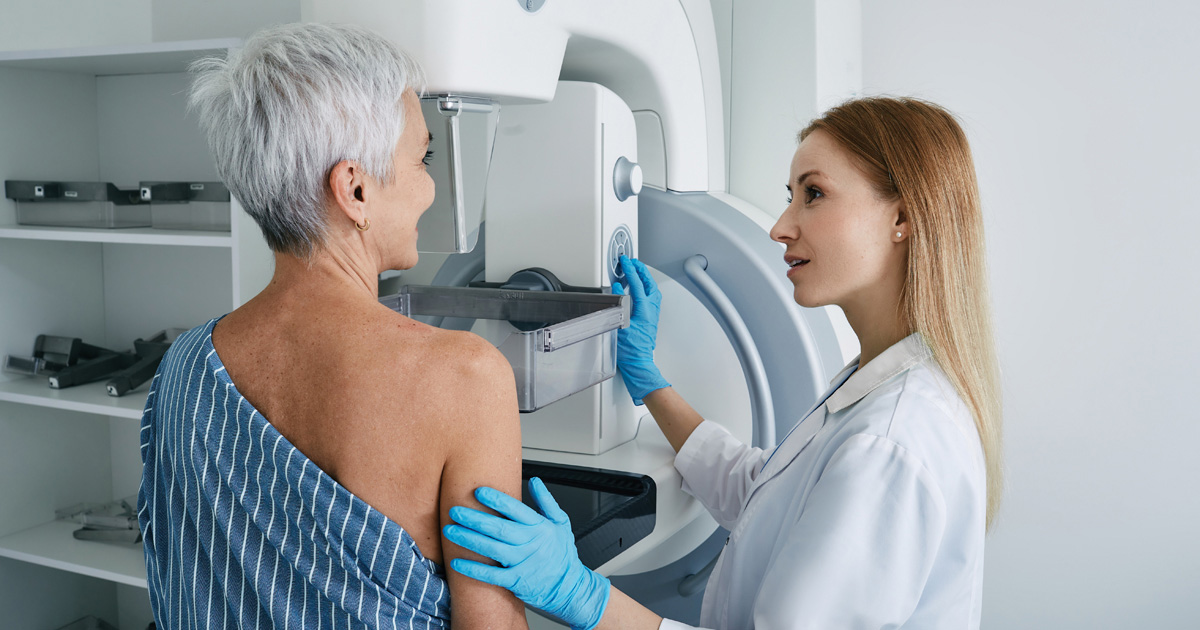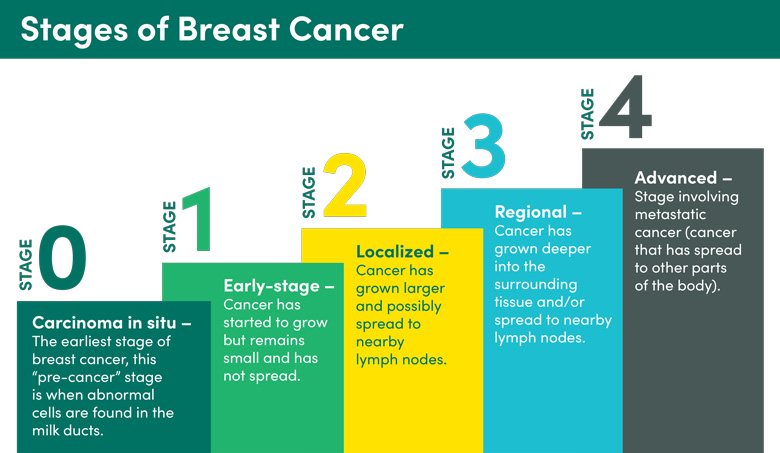Navigating Your Breast Cancer Diagnosis

Receiving a breast cancer diagnosis can be scary. Oftentimes, the most unsettling part is not knowing what comes next.
At AHN, we believe that understanding your health and knowing what treatment options are available to you are the first steps in navigating an uncertain journey.
Highly skilled doctors at AHN Cancer Institute at Saint Vincent Hospital are here to provide advanced care closer to home — so a hand to guide you is always within reach.
Understand your diagnosis
Understanding your diagnosis is an important step in preparing for your journey ahead. Once you’ve been diagnosed, your doctor will explain the type and stage of your breast cancer, helping you understand what it means for your treatment.

Your personal nurse navigator
The AHN Cancer Navigation Team at Saint Vincent is here to guide you every step of the way. They handle all the details — getting you set up with the care and support you need so you can focus on healing. This includes matching you with a nurse navigator who specializes in breast cancer.
From your very first appointment, your care team will take the time to understand your values, lifestyle, and personal needs to make sure your treatment plan aligns with what matters most to you. To make the most of your visits, consider writing down questions ahead of time and sharing with your nurse navigator.
Determine the best treatment for your needs
Treatment plans for breast cancer are personalized, meaning there's no one-size-fits-all approach. AHN Saint Vincent oncologists will work with you to develop a plan based on your unique situation.
Common cancer treatments include:
- Surgery – This might involve removing a tumor with some surrounding breast tissue (lumpectomy) or the entire breast (mastectomy). AHN surgeons are highly skilled at performing these procedures with accuracy and care.
- Systemic therapy – This involves treatment that travels through the whole body to fight breast cancer. It includes chemotherapy, endocrine (hormone) therapy, and/or targeted therapies. These treatments can help shrink tumors before surgery, kill cancer cells, and/or stop them from growing or spreading after surgery. It may come in different forms, like pills, injections, or IV medicine.
- Radiation therapy – This treatment uses X-rays to find and destroy cancer cells. New advances have reduced treatment time from 5–7 weeks to 1–3 weeks, with many finishing in just five treatments, making care faster and easier while improving outcomes and reducing side effects.
Treatment side effects
Cancer treatments can cause different side effects, and they vary from person to person. Some common side effects by treatment are listed below.
- Surgery – Pain, swelling, infection, and/or bruising; scarring and changes in breast shape; numbness or tingling in the chest or arm; lymphedema.
- Chemotherapy – Hair loss; nausea, vomiting, or loss of appetite; fatigue; weakened immune system; neuropathy; changes in memory or cognitive function.
- Endocrine therapy – Hot flashes and night sweats; joint or muscle pain; weight gain; mood changes; bone thinning.
- Targeted therapy – Diarrhea or nausea; fatigue; heart problems; skin rash.
- Radiation therapy – Skin redness, irritation, or peeling; lymphedema (swelling due to fluid buildup); fatigue; changes in breast appearance and skin color; hair loss under the arm only.
Your providers at Saint Vincent will work closely with you to manage side effects and reduce discomfort. Don't be afraid to reach out — your providers are there to help you feel as comfortable as possible during treatment.
Life beyond breast cancer
Life after breast cancer treatment can be challenging. Many survivors face lingering side effects, emotional struggles, and fears of cancer returning. Your AHN Saint Vincent Care team can connect you with many resources to help you and your loved ones feel supported:
- Support groups – Connecting with others who understand what you're going through can be very helpful. AHN offers in-person and online emotional support groups for breast cancer patients and their families.
- Counseling – A therapist or counselor can help you process your emotions and cope with the challenges of your diagnosis.
- Clinical resources – The American Cancer Society site and breastcancer.org are great resources for finding reliable information and tools.
- Rehabilitation services – Physical therapy, occupational therapy, and other rehabilitation services can help you regain strength and get back to feeling more like you after treatment.
Your partner in breast cancer care
A breast cancer diagnosis is more than just a medical issue — it’s a life-changing experience. AHN’s oncology experts will provide hands-on, compassionate care throughout your entire journey.
Call (814) 452-HOPE (814) 452-4673 to schedule an appointment or learn more about AHN cancer services at Saint Vincent.
About Chirag Shah, MD
Chirag Shah, MD, is a radiation oncologist and the division chair of Radiation Oncology at AHN Cancer Institute. He has extensive experience using radiation to treat patients with a variety of cancers, tailoring treatment plans to meet each individual’s needs. Dr. Shah specializes in breast cancer and sarcoma.
AHN Saint Vincent Hospital, Erie, Pa., is a part of Allegheny Health Network (AHN), a 14-hospital academic health care system serving the greater Western Pennsylvania and southwestern New York regions. Founded in 1875 as Erie’s first hospital, AHN Saint Vincent is a 371-bed hospital that employs 2,812 health care professionals, including 725 physicians. AHN Saint Vincent’s medical and surgical teams provide advanced care for patients with health needs.

